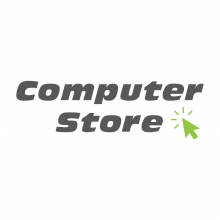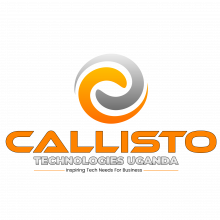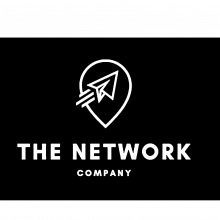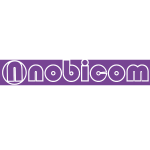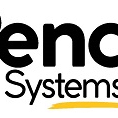
There are 10 Companies in Uganda
that provide IoT Development Services!
Uganda’s IT Services market is predicted to reach UGX US$335.98m in 2025, with a CAGR 2025-2030 of 8.48%. The IT Outsourcing segment accounts for the vast majority of this, at around UGX US$123.71m in 2025. Other important contributors are broadcasting, data center services, cloud, IT, and BPO.
Discover Top IT Companies in Uganda specialized in IoT Development and various programming languages like Java, C, C++, Python and more.
IoT Development is the process of creating and deploying Internet of Things (IoT) devices and applications. Everything is done using sensors that are built into every physical device. These sensors continually emit data about the working state of devices and send it to the IoT platform, further analytics is performed on the data and valuable information is extracted as per requirement. The output is shared with other devices for a better user experience.
Handpicked companies • No obligation to hire • 100% risk-free
Featured Companies in Uganda
This month, the following IoT Development companies managed to provide an outstanding service and support. It's worth taking a look.
Waanverse Labs Inc, Uganda's Leading Technology Company.
The company specializes in providing a wide range of IT services, ensuring comprehensive technological support for businesses and individuals alike.
Founded in 2023, CodeToInnovate Africa empowers communities by bridging skill gaps, enhancing problem-solving, and driving digital transformation.
Explore Top IoT Development Companies in Uganda
We specialize in medium to large-scale installation projects of data centers, office setups, and non-urban IT solutions for companies.
Flex your Brand
Callisto Technologies Uganda is a leading technology company based in Uganda.
We are a software development company in Kampala, Uganda. We develop websites, mobile apps and custom software solutions.
Uganda's leading eco-conscious technology solutions and service's provider. Focus on futuristic and cutting tech based deployment's.
Nobicom Technologies Ltd Trading as NobicomLabs is A software Company based in Kampala to provide Software Solutions & ICT Consulting
we are a full, ICT service company, data analytics, system development, networking, hardware installation, maintenance, web design, and hosting.
Filter IoT Development Companies in Uganda by Cities
Find the right tech company near you or from a specific city. Some of the best companies might be located in smaller cities.
Find more IoT Development companies around the world
TechBehemoths is the world's most advanced and user-friendly platform to match IT Companies with real clients without hustle.
The IT Industry in Uganda: General Portrait
Uganda’s IT Services market is predicted to reach UGX US$335.98m in 2025, with a CAGR 2025-2030 of 8.48%. The IT Outsourcing segment accounts for the vast majority of this, at around UGX US$123.71m in 2025. Other important contributors are broadcasting, data center services, cloud, IT, and BPO.
Uganda’s combination of relatively stable governance, strategic location, and young and innovative population has made it an attractive destination for multinational companies. Several notable firms, such as Google, Microsoft, and SAP, have offices in Kampala, and some have based their entire African operations from these offices.
Why You Should Work With Ugandan IT Companies
Digital service providers in the cloud and BPO markets are primarily involved in the provision, rather than the development, of services, whereas Ugandan firms are more prevalent in the fintech and e-commerce markets. The physical technology required for the delivery of digital services is typically imported, and it is not clear that Uganda could produce these products more efficiently.
A key strength in the digital services market is the acceptance of mobile services. Any consumer solution entering the market would have to be mobile-compatible. Mobile healthcare services are expected to grow particularly rapidly as the sophistication of these offerings increases.
What to Pay Attention to When Working With Ugandan IT Companies And Web Agencies
On the consumer side, it is vital that any proposed digital service offering be mobile-compatible due to the prevalence of mobile usage in Uganda. Furthermore, smartphone penetration in the region is steadily increasing, thus increasing the sophistication of viable digital service offerings.
Given the acceptance of fintech by the Ugandan population, a possible route to entry in the consumer market is to acquire one of the many smaller fintech firms in the industry. This would resolve some of the primary barriers to entry, most specifically bureaucratic red tape and a lack of local knowledge.
On the corporate side, the most effective route to entry is likely through partnerships with smaller local resellers. This model is already popular in the Ugandan market. A key differentiating feature here will be how well the service adapts to the Ugandan market.
How Reliable Are Ugandan-based IT Companies?
Considered to be one of the biggest African IT hubs, Ugandan web agencies and IT companies compete only with Ethiopian ones in terms of reliability. As many foreign companies have already invested and thus developed the local IT infrastructure and industry overall, Ugandan IT companies find it easier than other neighboring countries to enter the global market and provide their services at accessible prices.
How Does the Ugandan IT Industry Relate to the Neighboring Countries?
Uganda is actively trying to establish itself as a key ICT hub in the East African region. The country appears to be making good progress in this regard, helped by having a strong connectivity infrastructure and a young, innovative population. Despite this, the country currently faces considerable political uncertainty, and issues surrounding the transparency of tenders remain a major barrier to growth.
Although Uganda’s score for the metric measuring the economic impact of ICT is not high in absolute terms, it ranks 54th in the world. This supports the conjecture that businesses, government, and consumers will be receptive to new technologies, as ICT has already had a substantial impact on the Ugandan economy.
How will ICT Impact Uganda in 2025?
Uganda has lost one of the telecom investors and operators on the market, Africell. The change has an immediate effect on the labor market and telecom industry. The reasons behind leaving Uganda are in limited possibilities the country offers to the telecom operator. For Uganda, 2022 is a challenging year in ICT, with a low internet penetration rate, tech education, and competitiveness.
In 2025, the ICT in Uganda has a goal of becoming a digitally driven society in the economic and public services sectors. The government implemented the Digital Transformation Roadmap (2024-2028) with a focus on digital agriculture, mHealth solutions, youth skilling, and scaling Uganda’s BPO sector, leading to more jobs and unlocking economic resilience.
What is IoT Development and what are its benefits for your projects?
IoT (Internet of Things) is a giant network with connected devices. These devices collect and share data about how they are used and the environment in which they are operated.
IoT Development is the process of creating and deploying Internet of Things (IoT) devices and applications. Everything is done using sensors that are built into every physical device. These sensors continually emit data about the working state of devices and send it to the IoT platform, further analytics is performed on the data and valuable information is extracted as per requirement. The output is shared with other devices for a better user experience.
IoT Development has gained immense popularity in recent years, as the number of connected devices continues to grow at a rate of 25% year-over-year. By 2025, it is estimated that there will be over 30.9 billion IoT-connected devices worldwide.
Most IoT devices have the word smart at the start of their names: smartphones, smart watches, smart DVS, and smart homes. All these smart technologies are one of the essential criteria on which smart cities rely.
As we see Internet of Things (IoT) development plays an important role:
-
Improve operations by collecting and analyzing data from IoT devices.
-
Increase efficiency by automating tasks and processes.
-
Reduce costs by optimizing their operations.
-
Create new revenue streams by offering new IoT-based products and services.
When choosing an IoT Development service provider for a project, we suggest you consider the following criteria:
- Look for a company with experience and expertise in IoT development, and a skilled team of IoT specialists.
- Check for reviews and feedback from previous clients.
- Make sure the company understands your needs.
- Ensure the company prioritizes data security
- Consider the level of post-development support
Custom IoT development can be a complex and challenging process, but TechBehemoths is a valuable resource for finding the best IoT Development companies for your projects with over 1228 companies in 85+ countries. The platform provides detailed company profiles, client reviews, and ratings to help you evaluate and compare different service providers and choose the one that meets your needs.
We’ve created also a powerful filter that you can use to narrow down the results based on your requirements and shortlist the companies.
Alternatively, you can submit your project and our team will select and send you the best matching companies in about 1 hour.



